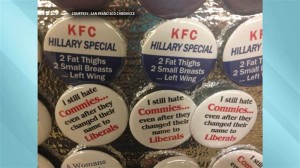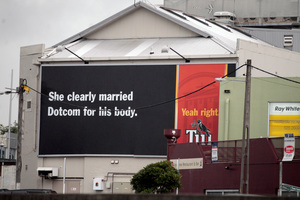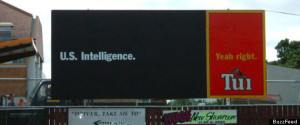On my way to the post office, I saw a transit shelter ad that stopped me in my tracks. A Vancouver radio station was claiming to play the best songs of all time. “Pretty bland positioning statement,” I thought as I hurried by. Then I saw the punchline, “Sorry Bieber…” My heart sank. Just because a radio station could not offer a worthwhile point of difference, it decided to take a full swing at an artist. Why? Were they trying to be funny? Is all fair in love, war, and advertising? Is such mean-spirited advertising copy truly necessary?
(Photo by Tina Powell, 2014)
Some may argue that Justin Bieber and others are public figures and as such, unwanted, negative attention goes with the territory. They profess that celebrities and famous people need to develop a tough skin or simply need to learn how to take a joke. To me, such thinking is a kind of blame-the-victim mentality: If Justin Bieber didn’t want to be ridiculed, he shouldn’t have become famous … OR … He was asking for it by writing such sappy songs or by drag racing in Miami. The old adage, “If you can’t stand the heat, get out of the kitchen” comes to mind.
Which leads me to my next example of mean advertising copy – the Hillary Clinton KFC buttons that were offered for sale by a vendor at an August, 2013 Republican event (Muller, 2013). You’ll have to read the buttons for yourself. I can’t bring myself to repeat the words here.
(Photo from the San Francisco Chronicle — http://www.msnbc.com/the-last-word/sexist-anti-clinton-buttons-gop-event)
Not only are these buttons wildly offensive and sexist, they are downright mean. Many people, men and women, are self-conscious about their appearance. To have your perceived physical inadequacies written on a button would be horrifying to anyone, public figure or not. Although the world of politics is filled with examples of nasty attack ads, these buttons go too far. If individuals have an issue with a politician’s position or proposed agenda, they have every right to voice their opinions. However, personal attacks on the way someone looks are juvenile and unnecessary. Plus, they’re not smart. As my next example illustrates, such attack ads can backfire and bring some unwanted, negative attention to the advertiser.
Tui Beer from New Zealand’s DB Breweries ran the following billboard as part of its “Yeah right.” campaign (Hurley, 2012):
(Photo from The New Zealand Herald — http://www.nzherald.co.nz/nz/news/article.cfm?c_id=1&objectid=10845038 )
For those of you who don’t get the “joke,” Kim Dotcom is a high profile, controversial internet entrepreneur in New Zealand (Hutchison, 2014). He is also obese. The Tui headline clearly implies that Dotcom’s wife married him for his money, since his body is unattractive (Siversten, 2012). Fortunately, the Complaints Board of the New Zealand Advertising Standards Authority upheld a complaint made against the ad and DB Breweries took the offensive billboard down (Siversten, 2012).
As someone who has spent her career striving to write advertising copy that uses creativity and intelligence to effectively market products and services, I believe mean advertising has no place in professional marketing. The advertising industry is better than that. As the examples above indicate, mean-spirited advertising is unnecessary, unwarranted, unacceptable, and unproductive.
I also realize, of course, that many readers may disagree with my position. Fair enough. But I wouldn’t be surprised if they one day have a change of heart should they be the subject of a mean ad…
(Photo from The Huffington Post, UK — http://www.huffingtonpost.co.uk/2013/01/15/yeah-right-billboard-ads-tui-beer_n_2478186.html)
References:
Hurley, B. (Nov. 4, 2012). Dotcom: Tui billboard ‘hurtful, insulting.’ The New Zealand Herald. Retrieved from http://www.nzherald.co.nz/nz/news/article.cfm?c_id=1&objectid=10845038
Hutchison, J. (Sept. 18, 2014). Kim Dotcom, Online Renegade, Shakes Up New Zealand Election. The New York Times. Retrieved from http://www.nytimes.com/2014/09/19/world/asia/kim-dotcom-online-renegade-shakes-up-new-zealand-election.html?_r=0
Muller, S. (Oct. 8, 2013). Sexist ‘KFC’ Hillary Clinton buttons at GOP event. MSNBC. Retrieved from http://www.msnbc.com/the-last-word/sexist-anti-clinton-buttons-gop-event
Siversten, J. (Nov. 23, 2012). Complaint upheld against Dotcom Tui billboard. NewsTalkZB. Retrieved from http://www.newstalkzb.co.nz/auckland/news/nbnat/1132068323-complaint-upheld-against-dotcom-tui-billboard





10 Responses to Advertising’s Mean Streak: A Necessary Evil?